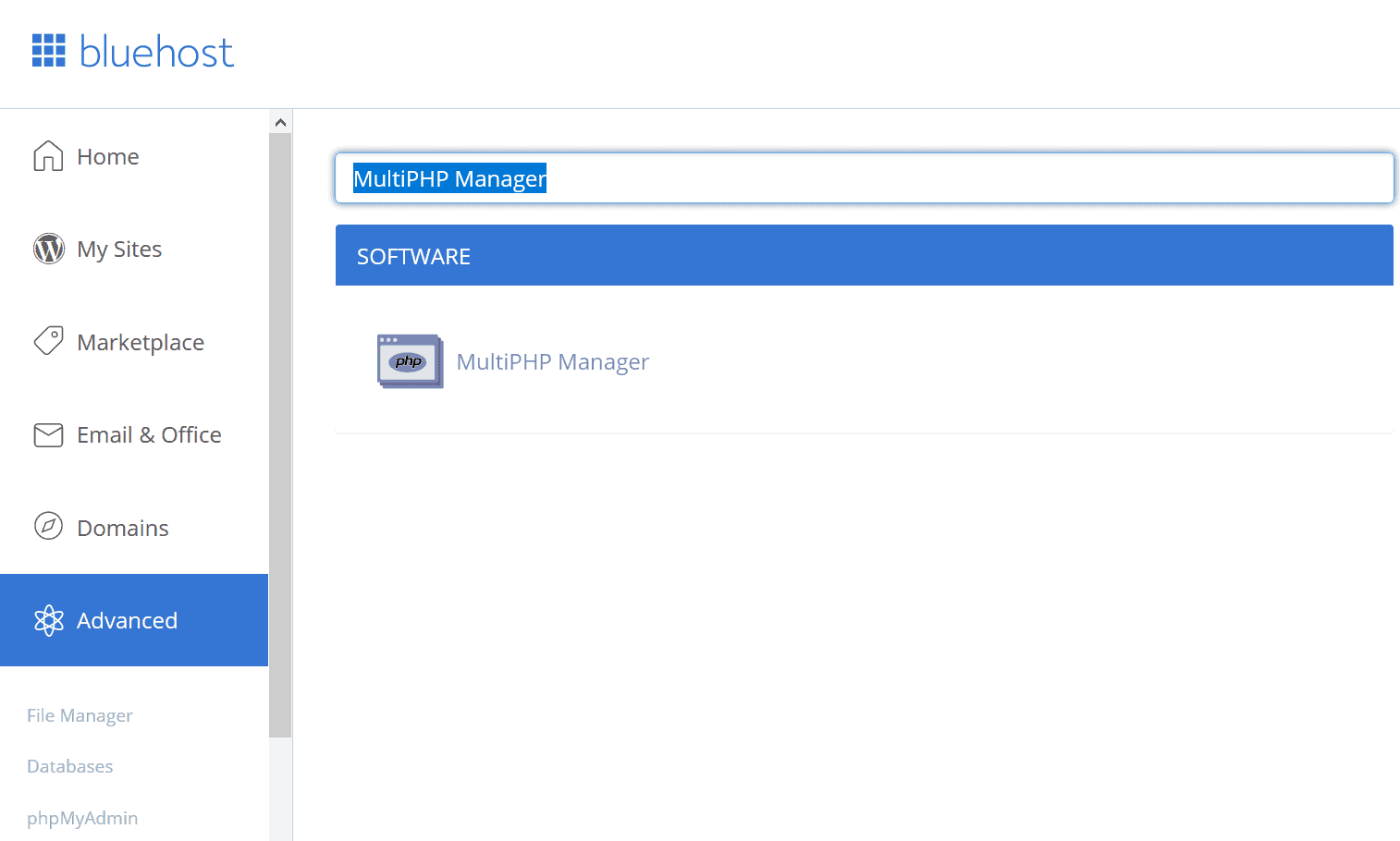Bluehost is a web hosting service that helps you advertise and market your business online. The service has a range of hosting plans, each one customized according to specific web hosting requirements and budgets. The service allows you to set the level of assistance that you get with running your website. You also get a performance boost—expect consistent speed and uptimes for your website. If you’re in need of web hosting for your personal or business site, let’s take a look at everything that Bluehost has to offer and what makes it a good option for you.


What Is Bluehost?
Bluehost is a highly popular web-hosting company based in Utah. Ever since it was established in 2003, the company has expanded its services and reach to other countries. It currently hosts just over 2 million websites all over the world, with a total of 17 web hosting plans. These plans fall under different web hosting types such as shared, VPS, dedicated, and WordPress web hosting. It also offers separate plans for e-commerce websites.
Bluehost’s popularity can be attributed to a handful of factors. Its products are first and foremost competitively priced, which appeals to beginners. Its cheapest plan is shared hosting, which only costs anywhere between $2.95 to $13.95 per month. The web hosting service also boasts of an excellent performance overall. The latest performance tests reveal a 99.6 percent uptime and 641ms speed for Bluehost. Bluehost is also very easy to use and has an excellent customer service record, which contributes to its popularity.
Bluehost is your one-stop shop for most of your website needs. It doesn’t just offer you a place to offer storage for your website data, but it also offers a comprehensive list of features and plugins that will allow you to take full control over your website. It also offers a variety of security features that come with its web hosting plans by default. If you are inexperienced in website management, Bluehost can also manage your websites for you. As though that wasn’t enough, it also offers unmetered storage and bandwidth.
What Are the Hosting Plans Offered by Bluehost?


Bluehost’s arsenal of web hosting plans is among the largest. Its plans cover the basic web hosting types including shared web hosting, VPS web hosting, dedicated web hosting, and specialized web hosting. Each plan is designed to fit your particular needs and budget. Regardless of the type of business that you run, there is sure to be a web hosting plan for you. Here is the breakdown of all the plans from Bluehost:
Shared Web Hosting


Shared web hosting is, you guessed it, a type of web hosting where you are sharing system resources with other websites. The main advantage of this setup relates to cost. Websites that run on shared servers are usually charged less than $10 dollars per month. On the downside, your website could be affected in case one of your neighbor’s websites experiences a spike in data traffic. But if you are the most popular website on the block, then you get to enjoy more of its system resources for less. Most beginner website owners start out with a shared server since they don’t expect a lot of web traffic. But should your web traffic increase unexpectedly, you can always upgrade your plan.
There are four sub-tiers under the shared web hosting plan:
- Basic Package: Will get you a domain name, the ability to host a single website, plus 50 GB of storage. You also get unlimited monthly data transfers plus five email addresses for your account.
- Plus Package: Gives you a free domain name, unlimited websites, and storage. It also comes with an anti-spam tool.
- Choice Plus: Includes everything contained in the Plus package. In addition, you also get to select extra security for your domains plus the option to backup your files.
- Pro Plan: You will get everything under the Choice Plus package plus a single IP address that can carry multiple domains.
Virtual Private Server (VPS) Hosting


A virtual private server (VPS) is a little more advanced than shared hosting. You still share server space with other websites, but the web host gives you a space to call your own. There are also far fewer sites per server with VPS. Think of VPS hosting as renting a room within an apartment complex.
The benefit of VPS hosting is that you get higher caps on your storage and bandwidth. You can also run any type of software and use any programming language that you need (not just PHP for WordPress). On the downside, VPS hosting is less flexible when it comes to re-allocating resources. Let’s say, for example, that you need more storage space and bandwidth. Most providers will only be able to “lend” you these resources, and you can only use them temporarily.
Bluehost offers three tiers of VPS web hosting:
- Standard: Comes with 30 GB of solid-state storage, 2 GB of memory, and 1 TB of monthly transfers. You’ll get one IP address.
- Enhanced: This plan comes with 60 GB SSD Storage, 4 GB RAM, and 2 TB Bandwidth. It includes two IP addresses.
- Ultimate: Comes with 120 GB of SSD storage, 8 GB of memory, and 3 TB monthly data transfers. You can get three IP addresses with this plan.
You can also expect to get discounts on your monthly fees if you decide to go for long-term contracts.
Dedicated Hosting


Dedicated hosting is unlike the first two options in that you get to have your own web server. You are essentially paying for the entire server instead of sharing the space with other websites. The major benefit of having your own server is getting root access or full control over your server. The RAM, bandwidth, and disk space are yours to allocate. You also get to add your own software to the server and configure the server logs’ settings.
A dedicated server will also allow you to install VPNs or virtual private networks to protect your server. A VPN is always an essential security measure, even for individual computers. Check out this guide on how to install a VPN for your computer. While dedicated web hosting carries many advantages, it usually comes at a cost. It is usually more expensive than shared or VPS hosting.
Bluehost offers three separate plans for dedicated web hosting:
- Standard: Will get you 4 GB of RAM, 5 TB of bandwidth, 500 GB of storage, and three IP addresses.
- Enhanced: Comes with 1 TB of storage, 8 GB of RAM, 10 TB of bandwidth, and four IP addresses.
- Premium: You will get 1 TB of storage, 16 GB of RAM, a 15 TB cap on your bandwidth, and five IP addresses.
WordPress Hosting


WordPress is a highly popular web content management software (CMS). Over one-third of the world’s websites were created using WordPress. The popularity of WordPress can be attributed to it being designed for people who have no technical knowledge in website management. Because let’s face it, most people aren’t trained in things like JavaScript, Python, or C++.
Also Read: The Best WordPress Plugins for Your Website
Bluehost offers three levels of WordPress plans (Build, Grow, and Scale) which are all partly managed by Bluehost. The tiers are differentiated by the number of visitors that your website has per month. The Build plan is for websites with over 50,000 monthly visitors, while the Grow plan supports 150,000 monthly visitors. You also have the Scale plan, which supports about 500,000 visitors.
Bluehost doesn’t set a limit for the number of domains, subdomains, storage, and number of data transfers per plan type. You can build as many websites as you need for as long they fit into the storage and bandwidth caps. In addition, you will also get additional security for your website in the form of anti-bot technology, SSL, and brute force protection. Bluehost also offers test sites for all three plans from which you can test launch your website.
What Are the Benefits of Bluehost?


Selecting a web hosting provider is surely a complicated process with a long list of considerations that must be made. But one of the most important considerations that you need to make is value for money. How much value are you getting in return for what you pay for? You can assess this by listing down the total number of features that you get, and by comparing these to what other services are offering. It’s also worth paying attention to the particular strengths of the web hosting provider, to see where it excels at. Here are some of the strong points of Bluehost that you need to know about:
1. Server Uptime


High server uptime is one of the basic requirements for any web hosting service. For those unfamiliar with the term, server uptime is just the total percentage of time that your website is up and running. Since the internet is accessible 24/7, people expect your website to run in the same timeframe as well. Whenever a server experiences downtime, the websites on that server will become inaccessible to the users. Of course, your server cannot be up 100 percent of the time. There are many external factors like server maintenance that inevitably cause downtimes from time to time. However, an uptime rate of above 95 percent is already great.
Bluehost promises an uptime rate of 99 percent and above. Of course, uptime levels can’t stay 99 percent all of the time. The rates are expected to fluctuate by a few percentage points at any given time. But in the case of Bluehost, the uptime rate never drops below the 95 percent threshold. This is an indication of a consistent uptime and a stable server. The uptime rates are also uniform throughout all web hosting plans. It doesn’t matter if you are using shared or dedicated web hosting. The uptime rates are the same.
2. Web Hosting Speeds


Loading speeds or web hosting speeds is another key consideration for selecting a web hosting provider. The loading speed is essentially a measure of how much time it takes to load a webpage inside a web browser, which is measured in seconds or milliseconds.
The average loading speed for web host providers is at 2.72 seconds. In the case of Bluehost, the average loading speed is at 932 milliseconds (ms) or less than a second. This means that Bluehost beats the average by up to 1.78 seconds each time.
Having a fast loading speed is very important to the success of your website. Most people are impatient, and so the faster your website loads, the better. If your website takes too long to load, people might get impatient and look elsewhere for information. If you are selling items or services, this can result in loss of customers and profit. Studies have shown that a slow loading can decrease your conversion rate by up to seven percent. Search engines like Google and Yahoo are also known to prioritize and reward websites that comply with ideal loading speeds.
3. Unmetered Bandwidth and Storage


Two other key benefits to using Bluehost are that they offer unmetered bandwidth and storage. Bandwidth is often expressed in the measurement megabits per second (Mbps). The term “unmetered bandwidth” is not the same as unlimited bandwidth. There is still a limit to the bandwidth or amount of data that you can transfer for any given period. But the main difference with unmetered bandwidth is that there is no limit on the amount of data that passes through your network.
For example, let’s say Bluehost sets the bandwidth cap at 50 Mbps. With an unmetered arrangement, you can send and receive as much data as you want, but it needs to be transferred within the limits of the bandwidth cap. Bluehost will not charge you for the volume of data that passes through your network, only the bandwidth. Be warned, though, that Bluehost is very strict about that bandwidth cap. They can actually cancel your account if you go above the bandwidth cap.
4. Reasonable Pricing


Bluehost has a very reasonable pricing package overall. While we cannot say that Bluehost prices are cheaper than the rest of the market, they fall within close range of average industry prices. Allow us to explain. The industry average for a simple shared hosting plan falls in the $7 mark. Bluehost charges between $5.95 and $13.95 per month for their plans. As you can see, the prices don’t fall far below or above the average range.
Even their most expensive plans aren’t all that expensive when compared to the competition. The industry average for a dedicated hosting plan is at the $100 mark. Bluehost’s dedicated web hosting plans cost anywhere from $79.99 to $119.99 per month. Again, their prices don’t fall far below or above the industry average.
Bluehost pricing is also more favorable for long-term plans. They offer discounted monthly prices for contracts with a longer time frame. For example, if you choose the three-year contract for shared hosting, your monthly charges will drop from $5.95 to $2.95.
5. Security Features


Bluehost is also very keen on security. It offers three anti-spam features, namely Spam Experts, Spam Hammer, and Apache Spam Assassin. You can password-protect all of your directories and add filters to your inboxes. The program also makes use of digital keys to secure your data as it travels to and from the network. It can also issue digital certificates to verify the website’s identity to security-conscious visitors. You also have the option to blacklist IP addresses from your website. Another top-notch feature is secure shell (SSH) access. This will allow your site administrators secure access to configuration files over an insecure network.
Bluehost also offers a two-step integration with Cloudflare, which is security software that detects external threats to your website. The software is particularly good at preventing denial of service attacks (DoS). DoS attacks seek to make your website unavailable to its users. In addition, Cloudflare will help your website load faster since it will cache specific parts of your website.
Bluehost has also recently implemented changes to its security protocols. When you change your password, the system will automatically take note of your new password and use that to log you in. You can also now link your Google account to your Bluehost account.
Furthermore, you can enable two-factor authentication to sign in to your account. This will keep your account safe in case someone gets hold of your password. Bluehost has also added a way for you to verify your identity whenever you ask for technical support. The control panel produces randomly generated tokens that the support team will ask for.
6. eCommerce for Online Stores


If you are selling a product or service online, you will want to use an e-commerce-centric web hosting plan. Bluehost offers two plans that will let you create and customize e-commerce websites. Both plans come with WooCommerce pre-installed. WooCommerce is the e-commerce plug-in for WordPress.
Once you’re in the process of setting up your website, Bluehost will ask you if you need a web store. If you agree, it will automatically install WooCommerce. From there, you will get the basic plug-ins for adding products, prices, and discounts to your store. You also get plug-ins for adding payment options, shipping options, and a shopping cart. There’s even a plug-in for letting your customers choose the time and date of delivery. You also get email marketing, product reviews, and website analytics.
As mentioned, there are two plans available: basic and premium. The basic plan is cheaper than the premium plan, but it only comes with the essential WooCommerce plug-ins. The premium plan is a little more expensive but has additional features. It comes with manual order creation, discount codes, subscriptions, product customization, and more. Both plans will also get you free SSL, a free domain, website analytics, and security features.
Also Read: Website Builders for E-Commerce and Blogs
7. Excellent Customer Service


Another aspect that Bluehost excels at is customer service. The company promises 24/7 customer support through all possible channels. You can call up the customer service, send an email, chat in real time with customer service staff, or send a ticketed complaint through the Bluehost portal. The live chat function is very useful when you need immediate assistance.
While we always want to see great customer service, it’s not always going to happen. Customer service representatives may not always be able to answer your call or provide the right solution to your problem. This is also why multiple customer service channels are available. If one channel fails, you can always turn to another. It also helps that the channels are very easy to use. Bluehost also offers helpful information on its website.
Final Thoughts on Bluehost Multi-Purpose Web Hosting Service


This concludes our review of the features and benefits of Bluehost. We want to add a few tips, though. If you are a beginner website owner, it would be best to start with something that you can easily manage. Begin with a simple plan before gradually making your way into a more complex setup. We also highly recommend going for a discounted, short-term plan first before signing up for a long-term plan. This should give you more time to test the plan before committing long-term fully. Both of these strategies will help you save up on cash and system resources. Either way, Bluehost is flexible with their plans so we trust there will be a plan to offer you the right balance between features and cost.
If you would like to explore other options besides Bluehost, you can check out our compilation of the best web hosting services for website management.























